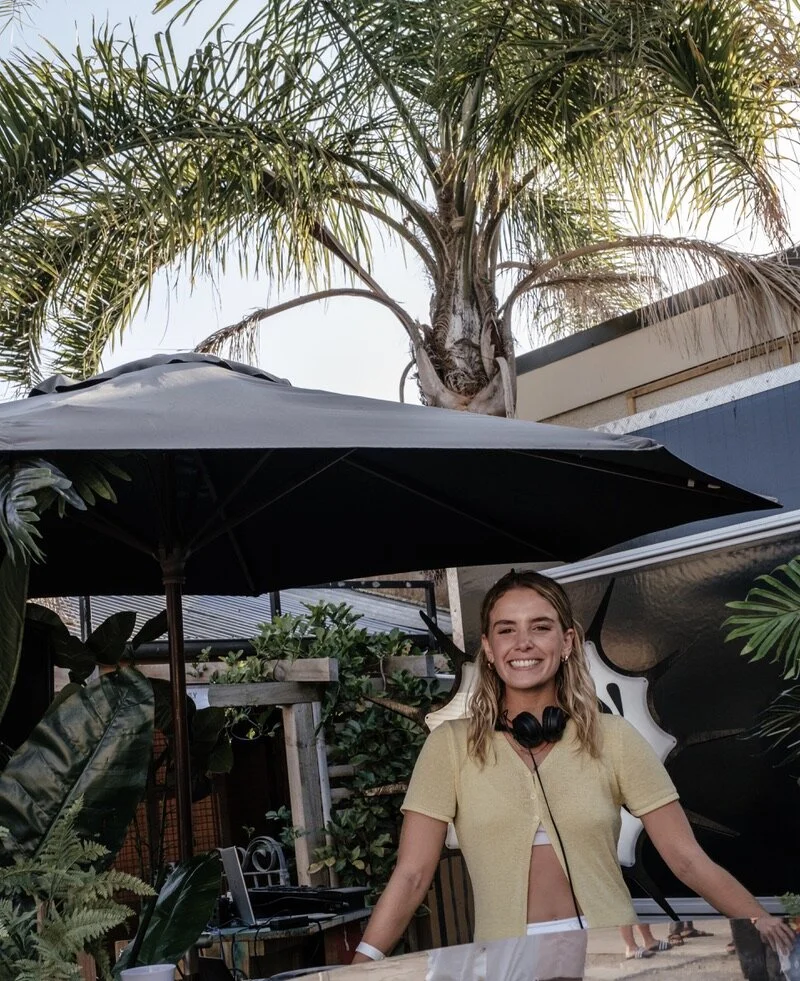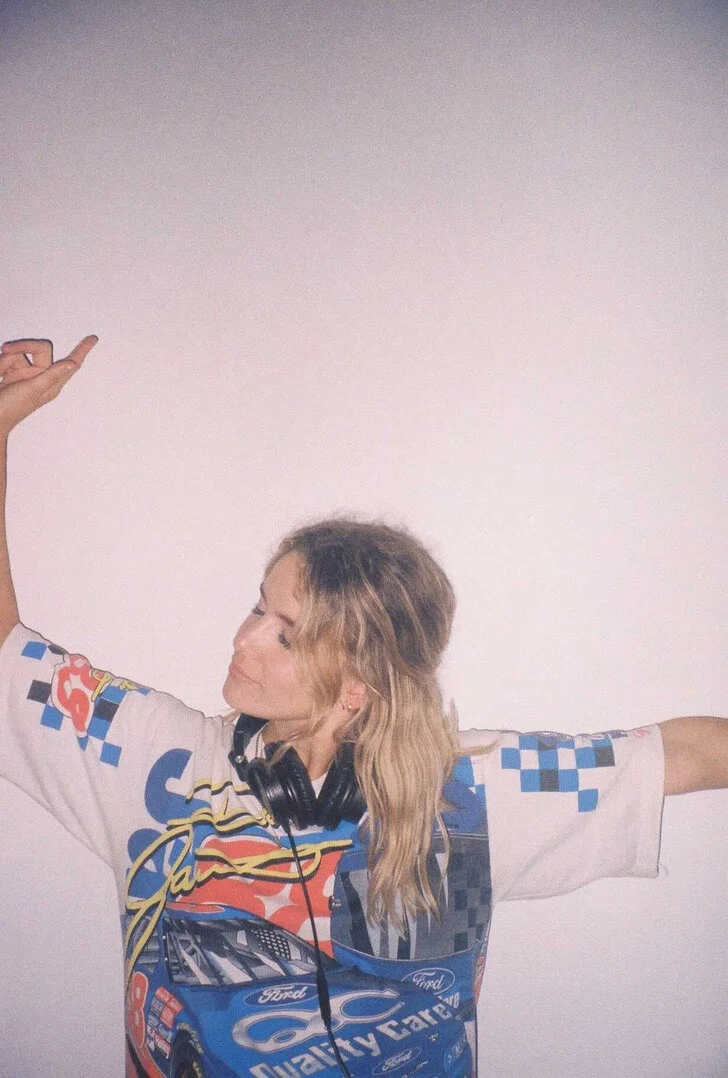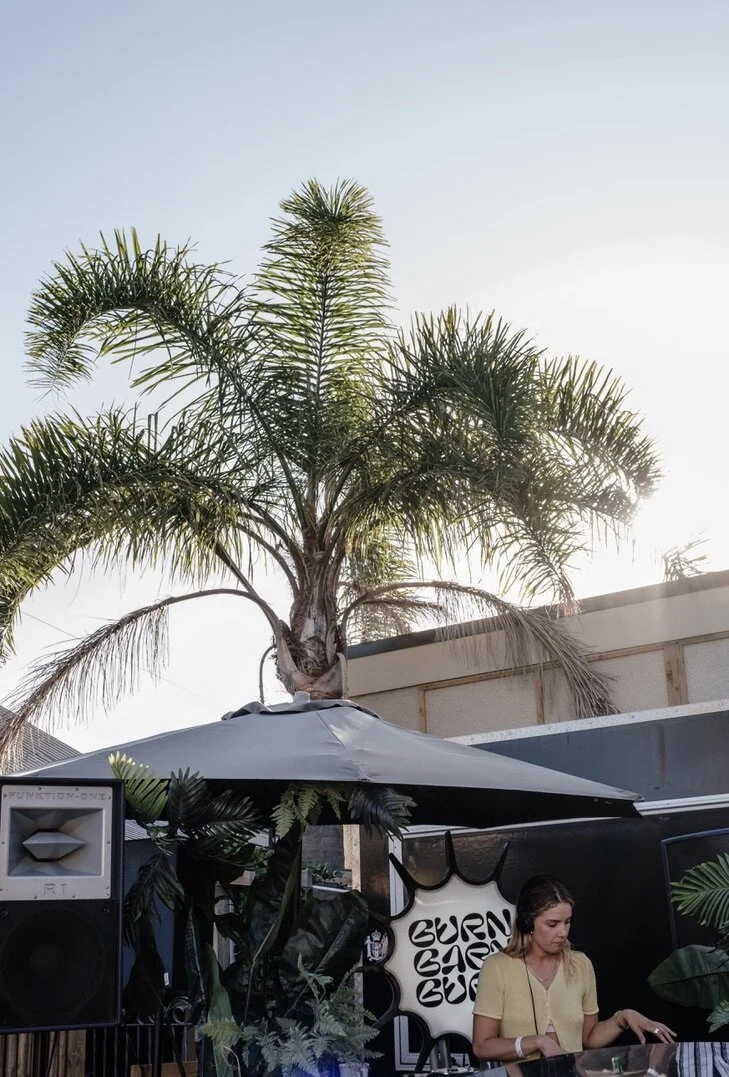DJ Bonnie Ryan-Vance on neurodivergencies, beauty and falling in love with house music
Sauce spoke with DJ Bonnie Ryan-Vance (or better known to some as Bontempo) ahead of her set at iconic New Zealand music festival, Splore.
How did you get into the music industry?
For as long as I can remember I wanted to be involved in music. I had the classic pop-star dream as a child, but I was also very aware that I didn’t have a strong enough voice to be a vocalist. As I don’t play an instrument, I thought the dream was null and void.
I moved to Melbourne in 2015 and was introduced to house/techno/electro music. Early in the piece I actually said: “house music is fine when I’ve been drinking at a club, but its not like I’m going to be listening to it by myself, like on public transport or something”, and I’m glad I was wrong. Although I didn’t plan to get involved, the sounds that accompanied our frequent late nights (and mornings) were too good to resist. A few of my close friends were mixing, and starting to dabble in production, so I got around it too. When I moved back to NZ I missed the music and events in Australia so much that I got a job I didn’t need, bartending at Club 121 on weekends, so I could wriggle into the scene here. It worked.
How does music correlate with your mental health?
I think it does for everyone to some degree (unless you’re someone who doesn’t like music at all, and if that’s you, and you’re reading this, I’d like to take the opportunity to tell you that you’re a psychopath). When you really love a song it’s like an emotional connection. It’s such a personal thing. It really bothers me when people call a certain genre “bad”, and I do not believe in guilty pleasures, because the absence of an emotional connection to music for me doesn’t mean it is the same for everyone else, and you shouldn’t ever feel embarrassed for liking something.
You were recently diagnosed with ADHD, how did that diagnosis impact your life?
It was incredibly validating. I hear talk from others about not wanting to live life under a label, but it isn’t like that at all. Often when I reveal these things about myself it is met with scepticism because I don’t fit the stereotypical description, and that is what encourages me to be more open about it. ADHD is often missed in women due to it presenting differently - this statistic may not be completely up to date but the ratio for diagnosis of ADHD at my last fact-check was six men to every one woman. Women often mask symptoms more effectively, and because I was (am?) reasonably intelligent, nobody really took any notice. I could read and write before I was five years old, and coasted through high school with minimal effort, but I do wonder what my life would have been if I was encouraged and understood throughout my education. Every report card from the age of 8 until my very last said something along the lines of “great potential, but easily distracted”.
I want to go back and give younger Bonnie a cuddle because it breaks my heart thinking of how much distress I was in, trying my absolute hardest to do what was required and never getting it right. At age 14 I was supposed to go to an inter-school spelling bee as our school’s representative for our age group, but I wasn’t allowed because I got in trouble for talking in class. So many of my teachers told me I might as well throw in the towel as there was no way I could finish school when I didn’t want to be there. I wanted to learn, and I learnt a lot when I was encouraged and allowed the space to ask questions or work alone. I absolutely did not peak in high school. To quote Homer Simpson: “I don’t know exactly what went wrong, but I know it’s always my fault”. I feel you Homie.
Do you feel like there is a stigma associated with neurodivergencies?
Very much so. Many people think that neurodivergencies, like Autism Spectrum Disorder (ASD) and ADHD are deficits; I see it as people being wired differently. Often people don’t believe me; many are sceptical of the existence of ADHD as a whole. I also think that people still build their opinion of Autistic people based on “Rainman”. I get the “I have [one generic symptom] sometimes, does that mean I have it?” chat thrown at me much too often.
I wish people were a little more informed, and I wish there was a little more focus on the positive aspects of neurodivergencies. In general - not just relating to the brain - differences should be celebrated. I don’t have a lack of attention at all, but a surplus of it, and I notice so much that others don’t. I’m full of information because I read so much and have an outstanding memory. A lot of it is kind of stupid information - like, the origin of the phrase ‘Hair of the Dog’ or why Robin Bain’s bladder proves he’s innocent - but it’s fun. I am extremely intuitive; and I don’t like things - I really, really love everything that I’m into. I have such enthusiasm for every part of my life.
The world would be a better place if we could all focus on the great bits of people and things, and if we nit-picked less, and stopped comparing people against each other.
What are you passionate about?
Well, I kind of answered that above. But with everything in life I have a top five. I can easily list my top five favourite feelings off the top of my head, so I’m going to answer this question that way.
My first is the feeling of connection - making friends, or that moment when you’re laughing with someone you care about, or feeling understood by someone you love. My second is hearing a song I haven’t heard in a long time and getting that intense nostalgia. My third is cooking a meal for people and them enjoying it. My fourth is being in water and the outdoors - swimming in the ocean and walking in the bush. My last is movement - I love to dance in my room alone and I am a huge reformer pilates fiend (I know, extremely Ponsonby of me).
What are you excited about?
Just life in general. As stated above, enthusiasm and excitement levels in me are usually pretty high day-to-day. I try not to live in the future, especially with all the pandemic business happening. I like thinking that everyday when I wake up, it could be the day I hear my new favourite song, or meet someone great, or eat something tasty.
How does skincare correlate with your mental health?
As much as people may scoff or think it’s shallow, I began my skincare and beauty obsession as a result of depression. When I was lowest, I could barely garner the energy to get out of bed other than to use the bathroom. I started doing a simple skin routine each morning and night and on days when I had achieved nothing else, having that consistency made me feel a lot better. It’s a nice little wind down to do at the end of the day.
What is your favourite skincare product?
Less focus on individual products and more on routine and consistency within skincare! My most used products are from CosRX - a korean brand. Their products are all reasonably priced, effective, and not too harsh. Also Biologique Recherche’s Masque Vivant has to be a top product. Worth the splurge. Smells and looks like vegemite, but gets the job done.
What is your favourite skincare tool?
My NuFACE Trinity device. I did so much research before buying because it was a hefty price tag, and it was worth every penny. I have since then convinced about six people to purchase one after showing them how to use it. Sponsor me NuFACE? Hahaha.
Where is Bontempo in five years?
If I’m lucky, still telling awful Dad jokes and getting to do heaaaaaps of music stuff… and hopefully with a Reformer Pilates teacher certification.
What gives you butterflies?
Playing music in front of people. Although I’m a medium-sized hurricane of a human being, I shut down in front of a crowd and have done since I was small. I get extreme butterflies every single time I DJ, so it’s the ultimate reward when people enjoy what I play. I cried after my set at Flamingo Pier as it was such a milestone for me and I felt so honoured (but also relieved that I didn’t black out from panic, haha).





